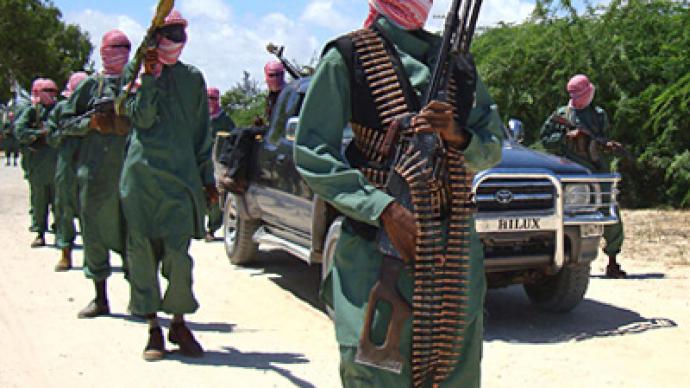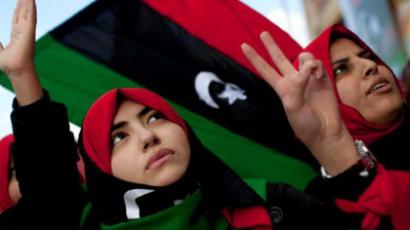Moscow "alarmed" by reports of al-Qaeda presence in Libyan opposition

As Washington considers arming the Libyan opposition against the government of Muammar Gaddafi, Russia fears it might be putting weapons into the hands of the world’s most notorious terrorist group.
Moscow officials on Wednesday expressed alarm that al-Qaeda may be working inside the ranks of the Libyan opposition. “Quite alarming reports are coming, which say that al-Qaeda elements could very likely be present among the opposition forces,” Russian Foreign Minister Sergey Lavrov told reporters at a news conference. “This certainly alarms us.” Lavrov added that the “plague” in the form of al-Qaeda terrorism could “spread all over the region and not only there."The Russian foreign minister was certainly referring to the possibility that any arms delivered to the Libyan opposition could all-too-easily slip into the hands of fundamentalists and extremists.Russia, which just this week remembered the 40 people who were killed by a terrorist attack one year ago on the Moscow metro, has experienced too many brutal acts of terrorism to sit idly by as sophisticated weapons fall into the hands of potential troublemakers.Lavrov, citing similar comments by the NATO secretary general, stressed that Russia does not want the NATO-led coalition to arm Libya's opposition forces. "The French foreign minister said recently that France was prepared to discuss with partners in the coalition arms deliveries for the Libyan opposition,” the Russian foreign minister said, while reiterating comments made by the NATO Secretary General Rasmussen who stressed that the operation in Libya “was meant to protect civilians, not to arm them.” “We fully agree with the NATO’s secretary general on that score," Lavrov said.Yet the question remains: will US President Barack Obama allow the Libyan strongman to remain in power, thereby giving the American president's political opponents, the Republicans, plenty of campaign ammunition as the 2012 presidential elections loom? Probably not.As questions concerning the identity of the Libyan opposition heat up in Washington, the US commander of NATO, Adm. James Stavridis, told a Senate hearing there were “flickers” in intelligence reports about the participation of al-Qaeda militants among the anti-Gaddafi forces.Critics say this is one of the more glaring problems connected with the Obama administration’s impulsiveness to rush headlong into the fray: it never established a clear picture as to the exact nature of the “anti-Gaddafi” forces. “No full picture of the opposition has emerged,” Admiral Stavridis admitted, as quoted by The New York Times.The NATO commander added that while eastern Libya was the center of Islamist protests in the late 1990s, it remains an open question as to how deep is al-Qaeda’s involvement. “Al-Qaeda in that part of the country is obviously an issue,” a senior official said, as quoted by The Times.US Secretary of State Hillary Rodham Clinton, citing the UN Security Council resolution that gives the coalition broad powers in protecting civilians, told her colleagues at the London conference that the US “had a right” to supply the opposition with arms.However, such a move will seem out of sync with US foreign policy, which has been enforcing an arms embargo against Libya. Obama said Tuesday that he was keeping all of the options on the table. “I’m not ruling it out, but I’m also not ruling it in,” he told NBC News. “We’re still making an assessment partly about what Gaddafi’s forces are going to be doing.”According to the Times article, “some administration officials argue that supplying arms would further entangle the United States in a drawn-out civil war because the rebels would need to be trained to use any weapons, even relatively simple rifles and shoulder-fired anti-armor weapons. This could mean sending trainers.”The New York Times, citing past American efforts to arm rebels, in Angola, Nicaragua, Afghanistan and elsewhere, said that the United States “has a deep, often unsuccessful, history of arming insurgencies.” At the present moment, it is difficult to see how US and NATO efforts in Libya will end any more successfully than those misadventures in the past.














